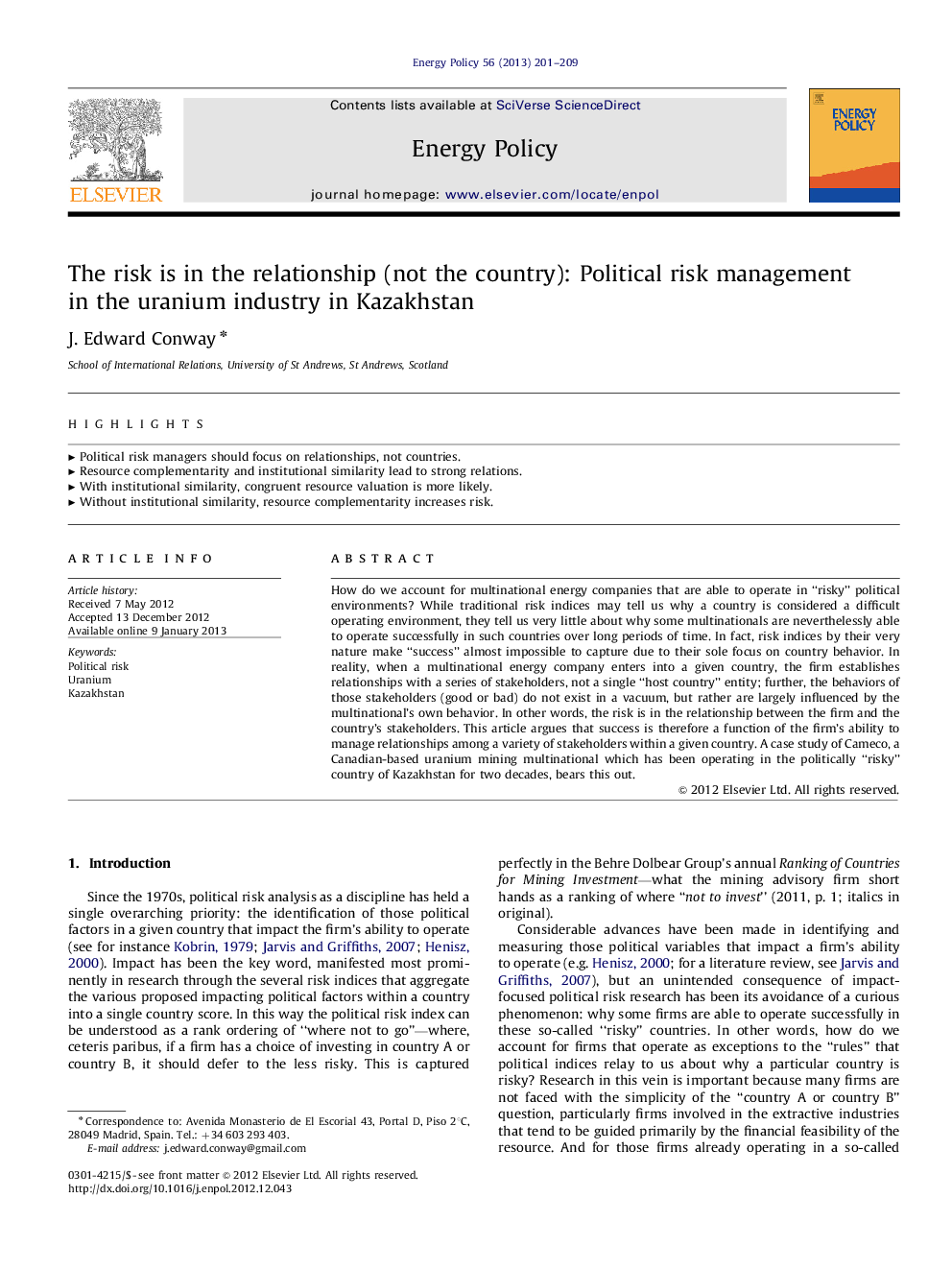| Article ID | Journal | Published Year | Pages | File Type |
|---|---|---|---|---|
| 994778 | Energy Policy | 2013 | 9 Pages |
How do we account for multinational energy companies that are able to operate in “risky” political environments? While traditional risk indices may tell us why a country is considered a difficult operating environment, they tell us very little about why some multinationals are neverthelessly able to operate successfully in such countries over long periods of time. In fact, risk indices by their very nature make “success” almost impossible to capture due to their sole focus on country behavior. In reality, when a multinational energy company enters into a given country, the firm establishes relationships with a series of stakeholders, not a single “host country” entity; further, the behaviors of those stakeholders (good or bad) do not exist in a vacuum, but rather are largely influenced by the multinational's own behavior. In other words, the risk is in the relationship between the firm and the country's stakeholders. This article argues that success is therefore a function of the firm's ability to manage relationships among a variety of stakeholders within a given country. A case study of Cameco, a Canadian-based uranium mining multinational which has been operating in the politically “risky” country of Kazakhstan for two decades, bears this out.
► Political risk managers should focus on relationships, not countries. ► Resource complementarity and institutional similarity lead to strong relations. ► With institutional similarity, congruent resource valuation is more likely. ► Without institutional similarity, resource complementarity increases risk.
